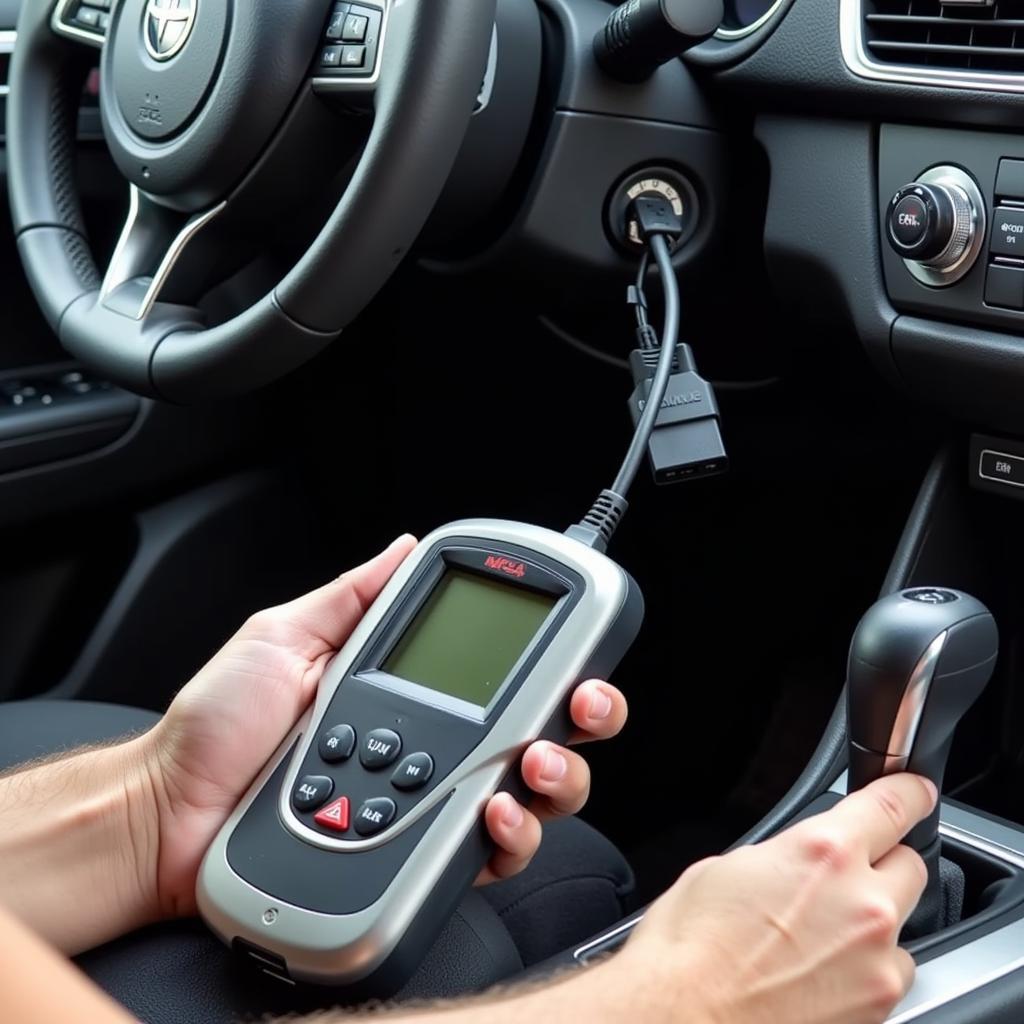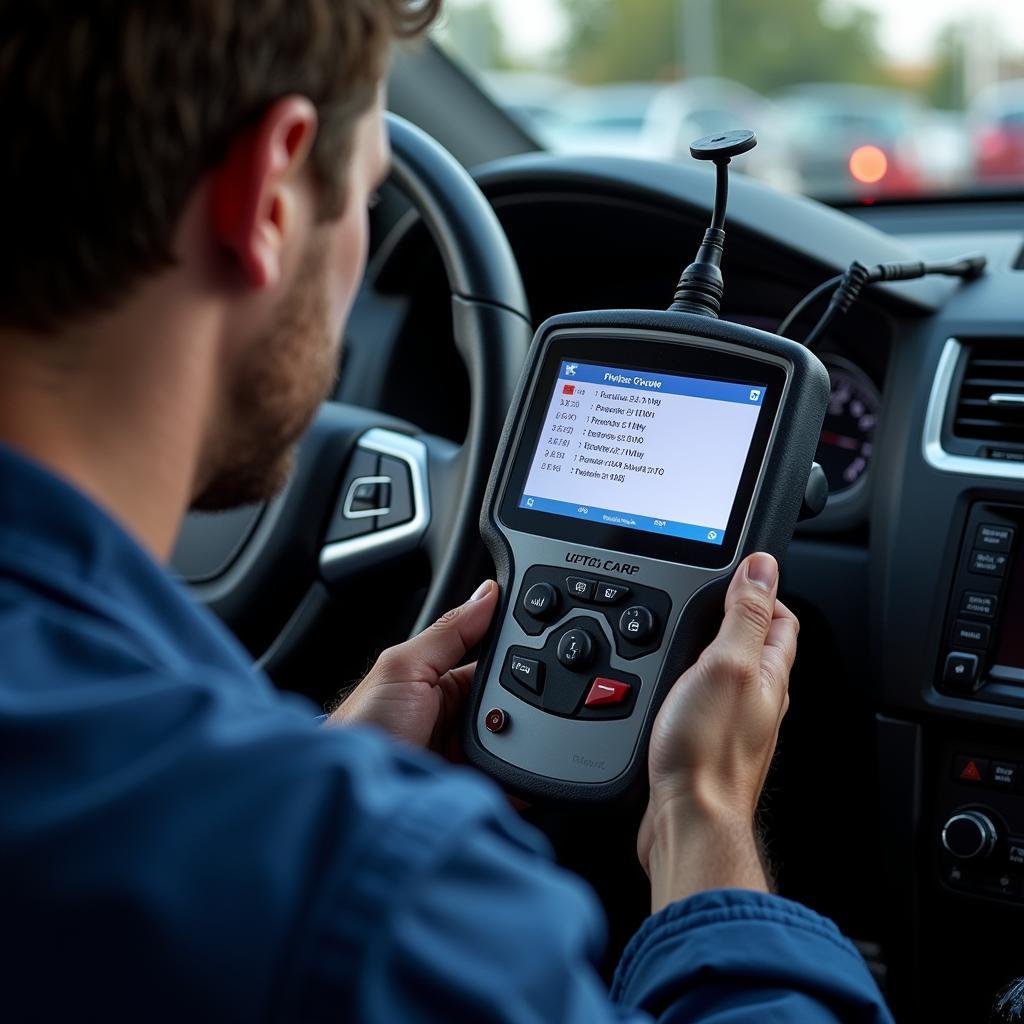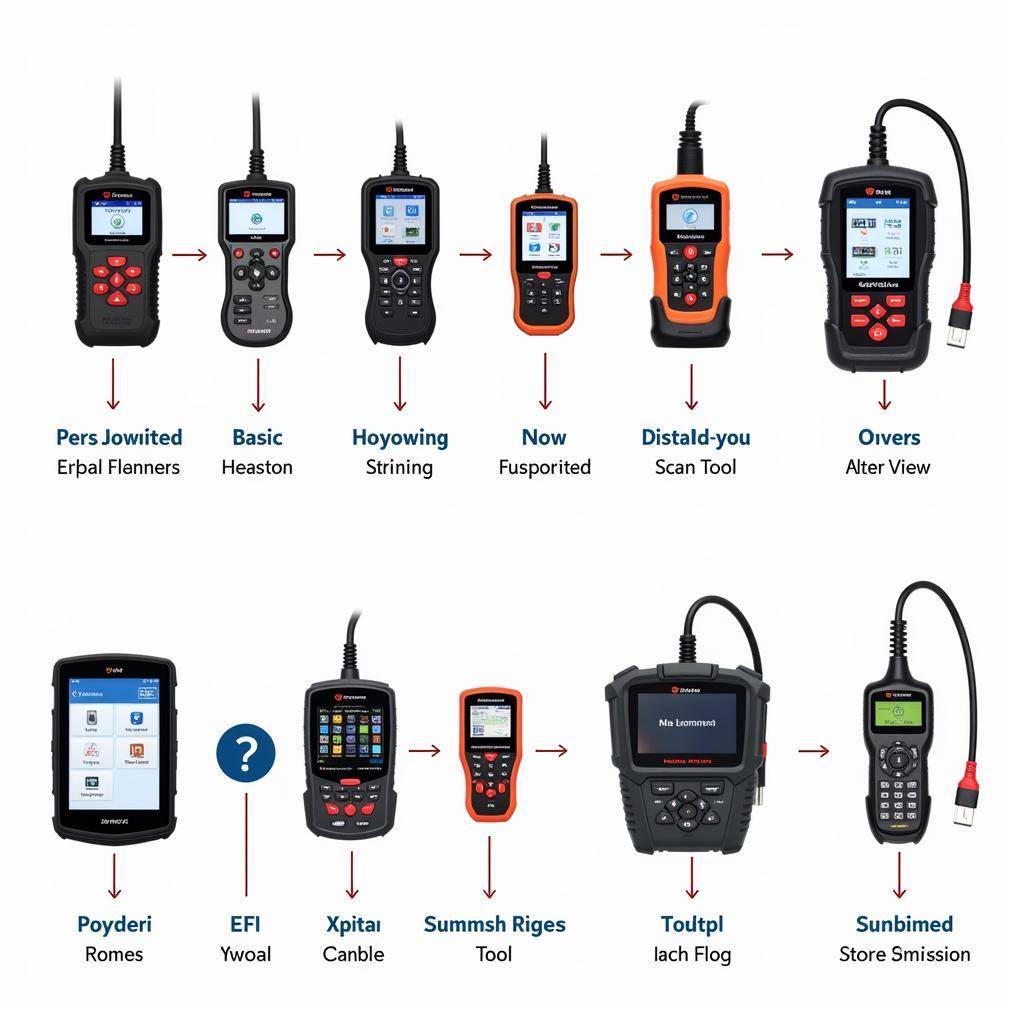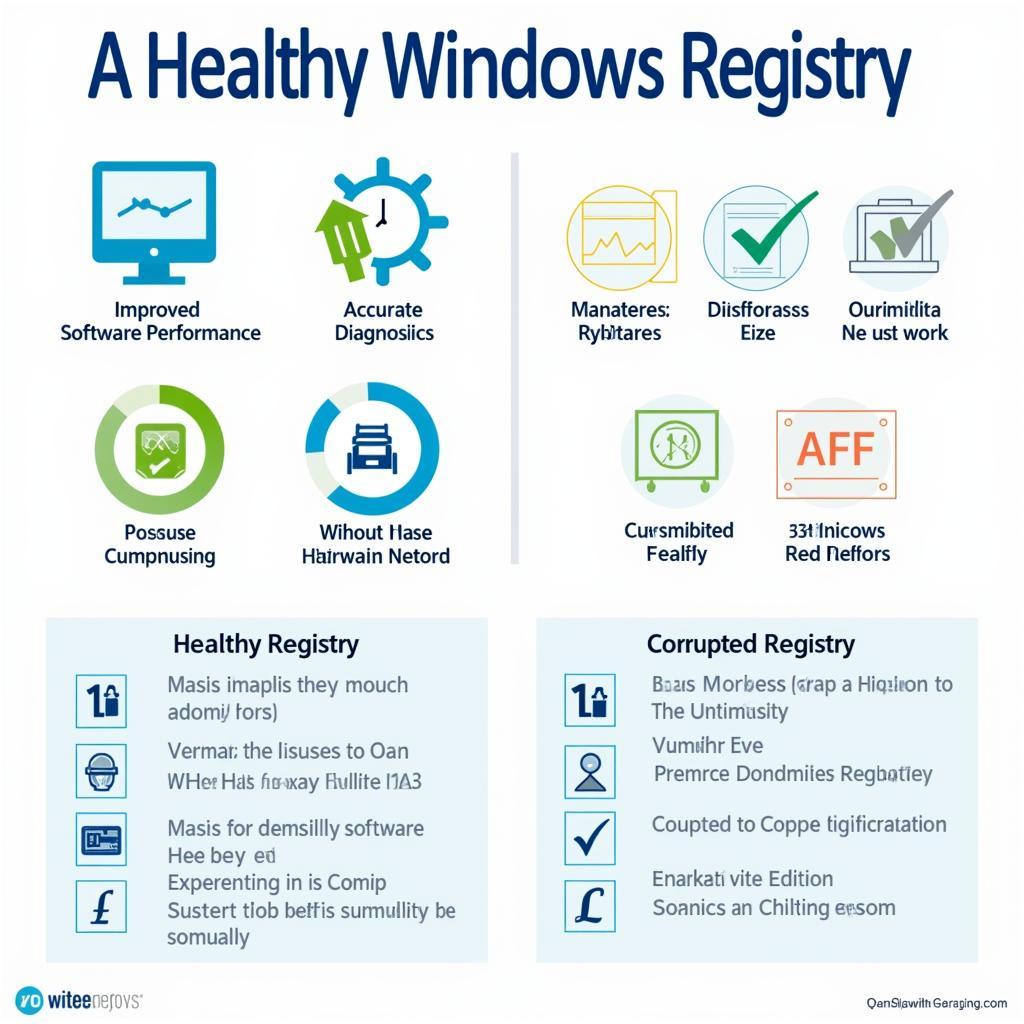Electronic Fuel Injection (EFI) systems are the heart of modern vehicle performance. When these complex systems malfunction, pinpointing the issue quickly and accurately is crucial. This is where Efi Diagnostic Tools come into play. These powerful tools provide the insights needed to troubleshoot and resolve EFI-related problems efficiently, saving both time and money.
Similar to uefi diagnostic tools hp, EFI diagnostic tools can offer a wealth of information about your vehicle’s performance. Understanding how to use and interpret the data from these tools is essential for any car owner, mechanic, or automotive technician. This guide will provide a comprehensive overview of EFI diagnostic tools, covering everything from basic functionality to advanced techniques.
What are EFI Diagnostic Tools?
EFI diagnostic tools are specialized electronic devices designed to interface with a vehicle’s EFI system. They retrieve diagnostic trouble codes (DTCs), real-time data streams, and other critical information that helps identify the root cause of performance issues. These tools range from simple code readers to sophisticated scan tools capable of bi-directional communication with the EFI system. Understanding the capabilities of different EFI diagnostic tools is vital for effective troubleshooting.
Why are EFI Diagnostic Tools Important?
Modern vehicles are increasingly complex, making accurate diagnosis without the right tools nearly impossible. EFI diagnostic tools empower mechanics and technicians to pinpoint problems quickly, avoiding costly guesswork and unnecessary part replacements. They offer a window into the inner workings of the EFI system, allowing for precise adjustments and repairs.
 Connecting an EFI Diagnostic Tool
Connecting an EFI Diagnostic Tool
Types of EFI Diagnostic Tools
Several types of EFI diagnostic tools are available, each with varying levels of functionality and complexity:
- Basic Code Readers: These entry-level tools retrieve and display DTCs, providing a starting point for diagnosis.
- Enhanced Code Readers: These tools provide additional information beyond DTCs, such as freeze frame data and pending codes.
- Professional Scan Tools: These advanced tools offer comprehensive diagnostic capabilities, including live data streaming, bi-directional control, and special functions.
How to Use EFI Diagnostic Tools
Using an EFI diagnostic tool generally involves the following steps:
- Locate the OBD-II port: This standardized port is typically located under the dashboard on the driver’s side.
- Connect the tool: Plug the diagnostic tool into the OBD-II port.
- Turn the ignition on: This powers up the vehicle’s computer and allows the tool to communicate with the EFI system.
- Read the codes: Select the “Read Codes” function on the tool to retrieve any stored DTCs.
- Interpret the codes: Use a reliable source to understand the meaning of the retrieved DTCs.
 Reading Diagnostic Trouble Codes
Reading Diagnostic Trouble Codes
Advanced Features of EFI Diagnostic Tools
Professional scan tools often include advanced features that enhance diagnostic capabilities:
- Live Data Streaming: Observe real-time sensor data, allowing for dynamic monitoring of EFI system performance.
- Bi-directional Control: Activate specific components within the EFI system, such as fuel injectors and actuators, to test their functionality.
- Special Functions: Access manufacturer-specific diagnostic procedures and functions, providing deeper insights into the vehicle’s systems.
kohler efi diagnostic tools and other specialized tools offer specific functionalities tailored for particular engine types.
Choosing the Right EFI Diagnostic Tool
Choosing the right EFI diagnostic tool depends on your specific needs and budget:
- DIYers: A basic or enhanced code reader may be sufficient for retrieving and understanding DTCs.
- Mechanics: A professional scan tool is essential for comprehensive diagnostics and repair work.
- Specialized Technicians: Advanced scan tools with manufacturer-specific capabilities are often required for complex diagnostics.
 Various EFI Diagnostic Tools
Various EFI Diagnostic Tools
Troubleshooting Common EFI Problems with Diagnostic Tools
EFI diagnostic tools can be invaluable in troubleshooting common EFI issues:
- Misfires: Identify the specific cylinder experiencing a misfire using live data and DTCs.
- Fuel Pressure Issues: Monitor fuel pressure readings to diagnose problems with the fuel pump, fuel filter, or fuel injectors.
- Sensor Failures: Pinpoint faulty sensors by comparing live data readings with expected values.
uefi diagnostic tools share some similarities with EFI tools in terms of accessing system information and diagnosing problems.
Conclusion
EFI diagnostic tools are indispensable for anyone working with modern vehicles. From basic code readers to advanced professional scan tools, these tools provide the information needed to diagnose and repair EFI-related issues effectively. Choosing the right tool and understanding its capabilities is essential for efficient troubleshooting. Contact ScanToolUS at +1 (641) 206-8880 or visit our office at 1615 S Laramie Ave, Cicero, IL 60804, USA for assistance in selecting the best EFI diagnostic tool for your needs.
yamaha efi diagnostic tool is a great example of a manufacturer-specific tool that offers advanced diagnostic capabilities.
diagnostic tools defining markers of the upper paleolithic are while seemingly unrelated, highlights the importance of diagnostic tools across different fields.



